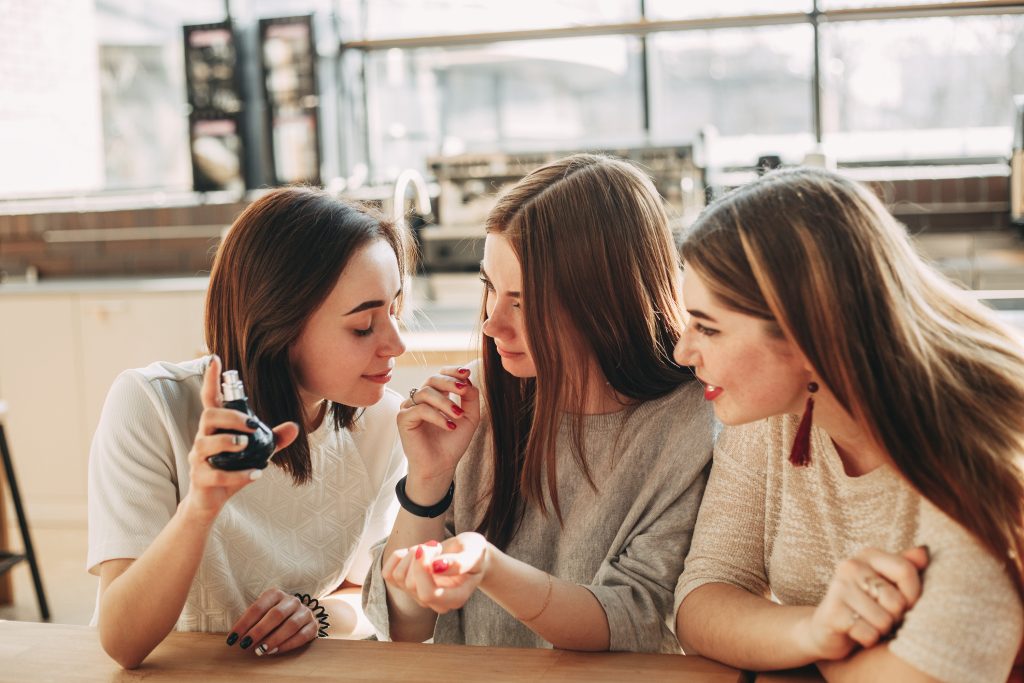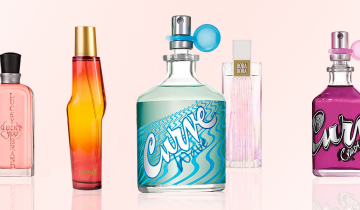Perfume can smell dramatically different when applied to various individuals, and this phenomenon is primarily attributed to biology. Several biological factors contribute to these variations in how perfume interacts with an individual’s skin and ultimately affects its scent. Here’s why perfume can smell unique on everyone:

1. pH of Your Skin:
- Skin pH Levels: The natural pH level of the skin is slightly acidic, generally below 5. However, the pH level can vary among individuals based on factors like nutrition and lifestyle.
- Perfume Interaction: When perfume is applied to the skin, its fragrance compounds interact with the natural oils and chemicals present on the skin’s surface, including within the sebum or “hydrolipidic film.”
- Effects on Fragrance: Fragrance ingredients may respond differently to pH changes. Some notes, especially floral ones, may become more vibrant in an acidic environment, while others may be subdued or altered. This variance in skin pH levels can result in different nuances and olfactory characteristics when the same perfume is applied to different individuals.
2. Condition of Your Skin:
- Skin Moisture: The hydration or moisture level of the skin can impact how a perfume smells. Moisturized skin tends to have a smoother texture and better fragrance retention.
- Perfume Interaction: Perfume molecules interact differently with moisturized and dry skin surfaces.
- Effects on Fragrance: Moisturized skin can retain fragrance molecules more effectively, leading to a longer-lasting scent that develops gradually. In contrast, perfume applied to dry skin may evaporate more quickly, resulting in a shorter-lasting, potentially sharper scent.
3. Activity Levels:
- Physical Activity: Engaging in physical activities, especially those that increase body heat, can influence how perfume smells. Exercise causes fragrances to evaporate more quickly, intensifying projection.
- Perspiration: Sweat during exercise can interact with fragrance molecules, potentially altering the scent.
- Body Odor and Pheromones: Natural body odors and pheromones released during exercise can blend with the perfume, creating a unique and personalized scent experience.
4. Diet:
- Foods with Volatile Compounds: Strongly flavored foods containing volatile compounds, such as garlic or spices, can mix with the fragrance and create a unique scent combination.
- Body Chemistry: Diet can subtly alter body chemistry, which in turn may modify body odor, potentially affecting how perfume interacts with an individual’s scent.
- Hydration: Adequate hydration from water intake can enhance perfume retention and development on the skin.
5. Complementing Body Odor:
Contrary to the negative connotations of body odor, our natural body scent can complement the fragrances we wear. The combination of body odor and perfume can create a unique and personalized fragrance.
Testing Perfumes on Your Skin:
To find the perfect fragrance, it’s essential to test perfumes on your skin. While paper blotter samples provide an initial impression, they can’t replicate the unique interaction between a fragrance and your skin. Always apply perfume to your skin and allow it to develop before making a decision. Perfume reacts uniquely with individual body chemistry, making it essential to wear and evaluate a fragrance over time to ensure it suits you.


 No products in the cart.
No products in the cart.